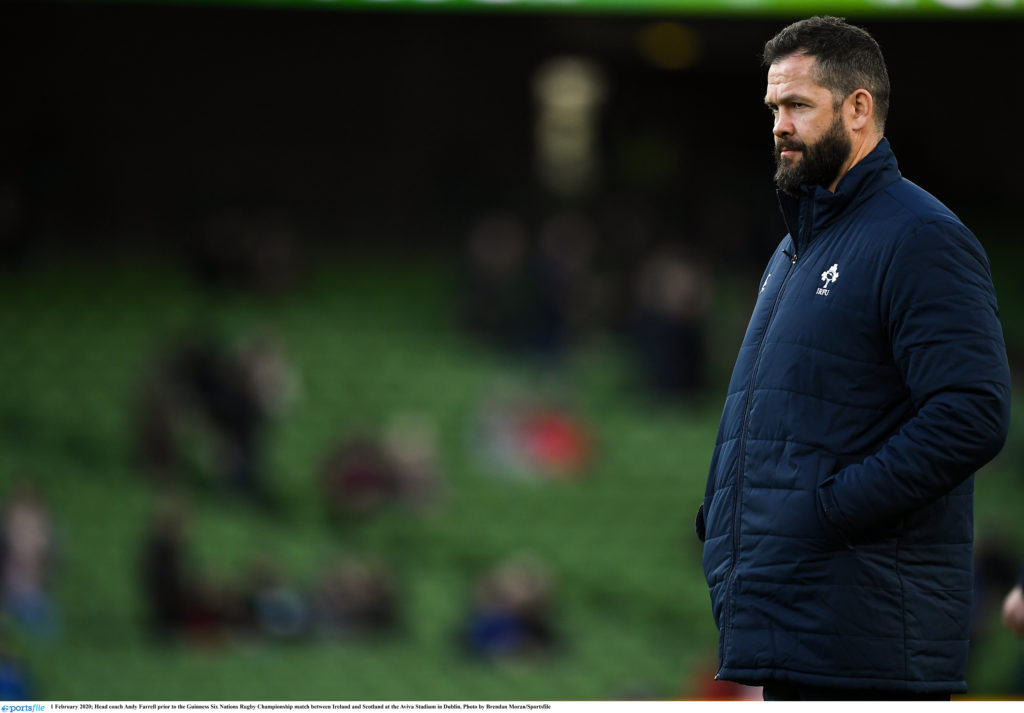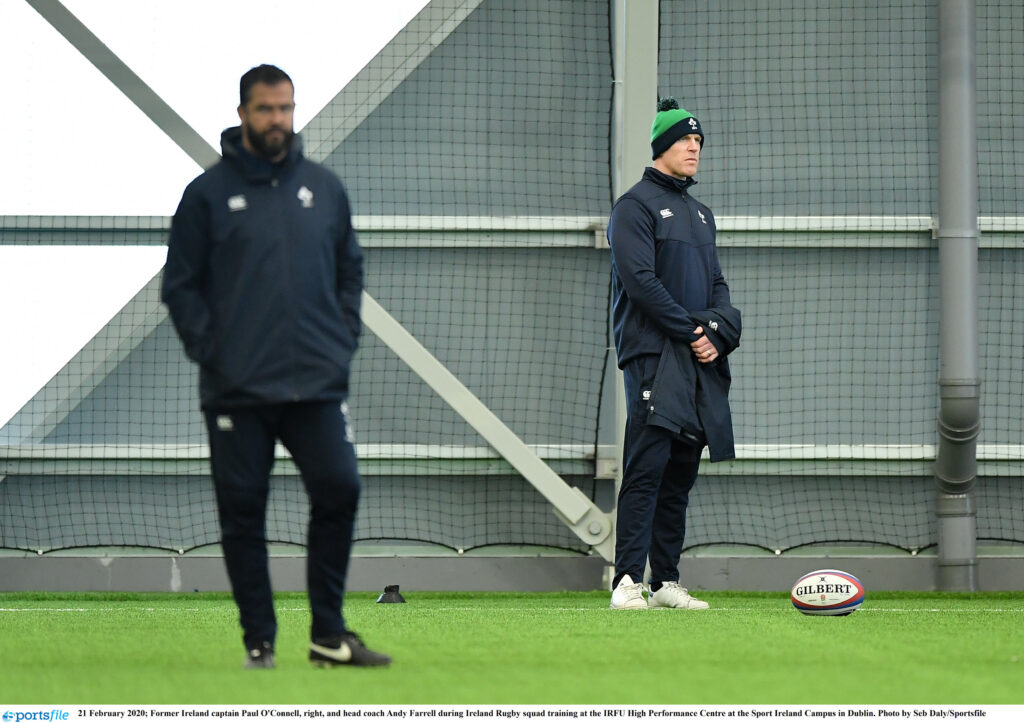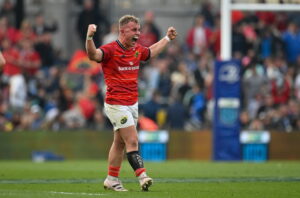YES, it may have felt like the longest year in memory, but it was indeed only a year ago this week when Andy Farrell took charge of his first Ireland match as head coach.

That time it was a 19-12 win at home against Scotland – a match that in many ways encapsulates the Farrell era to date. There were signs of affording players more freedom to express themselves than what they were used to under the Joe Schmidt regime. There were traces of a wider passing game and an aggressive tone central to the effort. An unspectacular display overall, but imposing, varied and competitive nonetheless. As a starting point? Promising, if not perfect.
Since then Ireland have won six times and lost on three occasions. Against Tier 1 nations the record reads as four wins and three losses. Two wins against Scotland, two wins against Wales, yet two losses against England and a further defeat at the hands of a formidable French side. It hasn’t been plain-sailing for the new boss.
The Welsh team that half of Ireland’s wins came against are in disarray under new management and have seen a significant turnover of players since the World Cup. The fact Wayne Pivac’s men could only beat Italy in last year’s competition dilutes the achievement somewhat for Ireland. The manner of the defeats to England are also concerning. Ireland at no stage made life uncomfortable for the World Cup finalists across 160 minutes of action and will be hoping to change the record in 2021.
Pressure
It would be unfair to say there is pressure on Andy Farrell right now but this competition could teach us a lot more about where this team is headed.
Over a year in the hot seat now, Farrell has had good time to put his imprint on Ireland’s style of play and has even brought in Paul O’Connell as forwards coach to cement the team’s fundamentals. Lineout malfunctions disrupted Ireland from launching their attacking ideas last Winter and now the hope is that the 2009 Lions captain can prove a set-piece game-changer on the training pitch.

The lineout will indeed be the first thing supporters expect to see ironed out. The 70-75% success rate that was seen in November will be insufficient if Ireland are serious about driving on as a team and at least having a good stab at the championship. Expectations are modest for the first time in a long time but getting that much right will be the bare minimum.
Since the 46-14 World Cup humiliation against New Zealand doom and gloom has more often than not been the feeling. A third successive quarter final defeat was a bitter pill to swallow and the changes made since haven’t quite inspired enough to convince anyone that 2023 will be much different. The quality of individual players is certainly there but that talent must now be harnessed in a way that makes Ireland an accurate, imposing team with a creative edge.
With a core group of experienced leaders in Cian Healy, Peter O’Mahony, CJ Stander, Conor Murray, Johnny Sexton and Keith Earls, world class talent in their prime like James Ryan, Tadhg Furlong and Garry Ringrose as well as prospects for the future such as Caelan Doris, Jordan Larmour and Craig Casey; there is a wealth of ability and game intelligence to utilize.
A team with that quality of character and ability has a great chance in any game and hurting from the past year will be the battle-hardened dogs of war Johnny Sexton and Peter O’Mahony. Should those key men perform to their full potential they can inspire everybody around them to hit the kind of form that made Ireland so successful for much of the past decade.
They come into the Wales fixture in fine fettle and once Ireland are accurate in executing their basics, an opening day victory should be secured without too much drama. Wales will be an indicator of where Ireland stand. England and France will be the ultimate litmus test.
We know full well from the past what these players have to offer. Hopefully this month teaches us just what Andy Farrell can bring to the party too.









